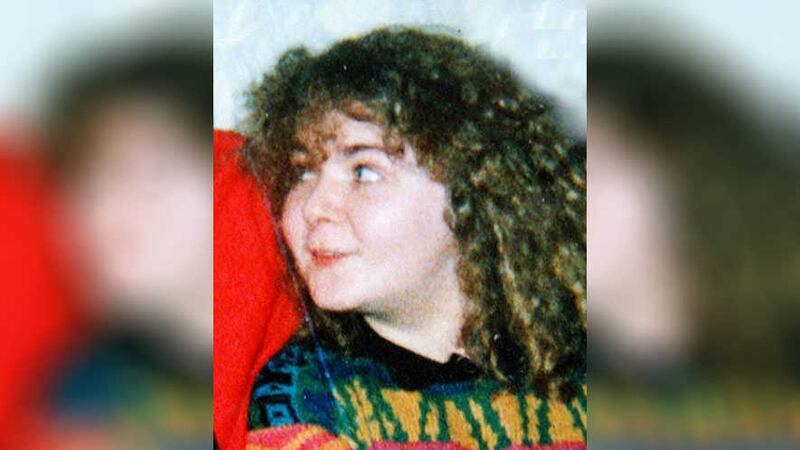POLICE threw everything into the investigation for missing schoolgirl Arlene Arkinson, a retired senior detective has told her inquest.
Former chief superintendent Eric Anderson robustly defended his handling of the high profile case, insisting the prime suspect was put under 24 hour surveillance and that a controversial order to search the home of the teenager's sister had been authorised at the highest level.
He said: "We could not have done any more than what we did."
Fifteen-year-old Arlene Arkinson from Castlederg, Co Tyrone disappeared after a night out in Bundoran, Co Donegal.
She was last seen being driven off late at night with child killer Robert Howard who was acquitted of her murder in 2005 by a jury which was not told about his conviction for killing a teenage girl in London.
Mr Anderson, who retired in 2001, was giving evidence for a second day to Belfast Coroner's Court.
He had been excused from attending because of ill health but spoke to the coroner Judge Brian Sherrard via Skype.
"It was a full-scale investigation," he added.
A month-long delay in arresting Howard was to collect evidence and conduct research, the court was told.
Even though he was signing bail at Castlederg police station for the alleged rape of another teenage girl in the town, little was known about him, it was claimed.
Indeed, it was not until RUC officers spoke with their counterparts in An Garda Siochana that the full picture about Howard's character emerged, Mr Anderson said.
"Nothing much was known about him," he said. "There was total confusion about anything to do with him until we had got him researched and when that research was completed we then decided to arrest him.
"In all this consideration, the thing that was uppermost in our minds was to secure Arlene or to secure her body, if that was the outcome.
"We were playing catch up in order to build a case against Mr Howard.
"There was no point going to talk to Mr Howard unless we had some hard facts to put to him."
Earlier Mr Anderson repeated claims that the controversial order to search the home of Arlene's sister had come from the top.
Police and the British army swooped on Kathleen Arkinson's home in Castlederg on April 24 1996, and her entire garden was dug up over a number of days.
Nothing was found but unsubstantiated rumours about her involvement persisted for years.
Mr Anderson said he specifically remembered meeting the-then Chief Constable Sir Hugh Annesley at police headquarters in Belfast when the decision was made.
"I know and affirm that the chief constable gave authority for the search," he said.
Sir Hugh's failure to recall their meeting was attributed to his hectic schedule.
Mr Anderson added: "That's still my evidence to the court, based on the fact that the chief constable was much busier than I was.
"I again state that his permission was obtained before the search."
The search was the result of a tip-off from an informant whose identity is protected by a Public Interest Immunity certificate.
Mr Anderson, who has previously described the source as a "pillar of society" said he never asked for their identity but trusted the judgment of his officers who had spoken with the person.
He said: "I had asked about the person concerned and I was given very favourable information about their integrity and honesty."
Mr Anderson also rejected claims he destroyed notes relating to the Arkinson investigation.
He claimed the sheer volume of work meant it was impractical to keep notebooks but told the coroner he used "sheets" which were submitted to an incident room.
"I did not destroy any note relevant to any inquiry," he added. "The only thing I destroyed were my journals because I had nowhere to put them."
The journals recorded his daily movements, mileage and expenses claims, the court heard.
There were also some terse exchanges when Mr Anderson was questioned about police documents he retained after his retirement in 2001.
The former detective launched a stinging attack on the makers of a television documentary in which he was secretly filmed appearing to offer the documents for sale for £700.
Mr Anderson said he had met with the UTV Insight team on the understanding that they were seeking to use his consultancy firm Just Experience but was "tricked".
He said: "It was a deliberate attempt to discredit me by portraying me as corrupt and incompetent."
After seeing the edited programme he was left in a "deeply distressed" state but insisted he had done nothing wrong.
"There was nothing controversial. It had already been aired in court," he said.
"There was nothing in the documents that was illegal.
"The TV programme was saying these were top-secret documents for sale. They never were and they never will be."
Under cross examination from Kevin Rooney QC, a barrister for the Police Service of Northern Ireland, Mr Anderson said he would never "dream of betraying the trust" of the RUC.
The papers consisted of reports from two police officers, a statement from the former partner of Kathleen Arkinson and a media release, it was revealed.
Mr Anderson also batted away suggestions the documents had been kept to protect himself against any potential action by the Police Ombudsman.
"The Ombudsman had no authority over me as a retired officer. None whatsoever."
The hearing was adjourned until Thursday.


